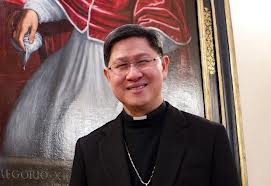If you hear a good sermon, or a great story which helps a sermon, steal it for yourself.
The same is true of pastoral ideas. I don't know who first started this one, but several years ago someone had the bright idea to just open the church, announce that a priest would be there for several hours during the evening, and see what happened. What happened is that people appreciated the opportunity to visit with a priest--whether to formally receive the sacrament of reconciliation, or just talk over something troubling on one's heart. (This is sort of the same idea of professors on university campuses who have "open office hours," when you don't need to make an appointment.)
I have to admit we tried this in the Diocese of Pittsburgh a few years ago, and it was less than a success. But when then-Archbishop Wuerl moved to Washington, he tried it again, and it was a big hit. A couple of parishes expanded it from the once a Lent night to every Wednesday evening throughout the year.
So this Lent once again Bishop Zubik has asked every parish and church in the diocese to be open on Wednesday, March 6, from 6:00 to 9:00 p.m. A priest will be available in the confessional, for the sacrament or for what I like to call "holy conversation," also known as spiritual direction.
In our neighborhood of New Castle, here's the lineup:
Mary Mother of Hope Church, Father Nick Vaskov
St. Joseph the Worker Church, Father Bill Siple
St. Vincent de Paul Church, Father Frank Erdeljac
St. Vitus Church, myself.
The Archdiocese of Boston has a nice website which gives background on confession/reconciliation, www.thelightisonforyou.org . It has Q&As on confessions, testimonials, examinations of conscience for various vocations (adults, married couples, teens, young adults, priests, religious), a listing of pastoral letters by bishops on penance, and more.
I'll take a book to read for the three hours, but I'm hoping I never open it. I hope enough folks come out to talk, to pray, and to receive the sacrament.
Check the parish nearest you for the opportunity to pray, receive the sacrament, and draw closer to Christ during this wonderful season of Lent.




























